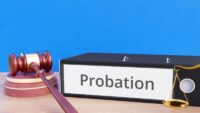Background checks aren’t fun for anyone, so when they take longer than is comfortable, you might wonder anxiously, “why is my background check taking so long?”.
The good news is it’s perfectly normal for background checks to take a considerable amount of time. After all, screening agencies must conduct meticulous research to provide findings their clients rely on when making hiring decisions.
However, in some cases, outside factors may be behind the process, seemingly dragging on without end. This article reveals some of those factors and provides solutions for nudging the process along.
Short Answer
Your background check may be taking longer than is comfortable because:
- The details you provided contain discrepancies due to spelling errors
- The screening agency needs more information from you
- Third parties contacted by the screening agency are dragging their fees
- It’s taking longer than necessary to get a criminal record from court
- The screening agency is trying to comply with more than one state’s background check regulations
- Bad weather is preventing people from doing their job
The above list of reasons isn’t exhaustive. However, it includes some common reasons behind a slow background check process.
Reasons Why Your Background Check Is Taking Too Long
Let’s go over the reasons for a lengthy background check in greater detail:
Inaccurate or Inadequate Information
Typographical errors (on your part or by a third party) can slow a background check to a crawl. For example, you could misspell your name while filling out a form or omit a digit in your social security number by mistake, causing issues down the line.
Usually, it takes a while to catch such discrepancies (often when the screening process is in full swing). To make matters worse, some services may prefer to restart the exercise to avoid errors once they’re noticed.
Alternatively, the problem may be that you didn’t provide enough information, in which case the party running the check may reach out to you for further details. It’s a good idea to check your spam folder if you suspect that to be the case but haven’t received an email to that effect. The email may have arrived there instead of in your inbox.
Third-Party Delays
A large part of background checks involves gathering information from multiple parties like former employers, educational institutions, employment references, private individuals, and the like. By reaching out to these individuals and institutions, screening agencies aim to build a profile around prospective employees.
Usually, screening agencies have specific policies guiding how they extract the information they need from these third parties. For example, some agencies may decide a conversation over the phone will suffice, while others may prefer to drop by in person.
However, no matter the agency’s method, the ball remains firmly in the third party’s court regarding how quickly they respond and how receptive they are to the agency’s contact. Some of the contacted parties may respond slower than others, or may not even respond, whether wilfully (for example, due to client/attorney privilege) or otherwise (if deceased).
Delayed Access to Court Records
Even though many states have online criminal databases open to the public, some states and counties may not have this digital infrastructure in place.
As such, in the latter type of jurisdiction, screening agencies may have to rely on a court clerk to perform a manual search and produce files. If the court is understaffed or the clerk is inexperienced, it could take longer to get the information out.
Additionally, some courts have their way of doing things, meaning showing up in person may not produce results. For example, the court could prefer the agency mail the search application, which can prolong the process by at least a week or more.
Differences in State Regulations
It’s possible that differing state regulations for background checks may be holding up the screening process. For example, if you live in one state and work in another, the screening agency will have to put in extra work to avoid running afoul of the laws of either jurisdiction.
Bad Weather
Believe it or not, the weather may affect how quickly it takes to complete a background check. Due to the nature of some of the information gathered during a background check, screening agencies may have to rely on individuals and government institutions (staffed by individuals) when conducting checks.
The background check may take longer depending on the time of year. For example, it’s not unheard of for offices to close during blizzards or hurricanes, as personnel may be instructed to stay out of harm’s way by staying home.
Next Steps
If you suspect one of the above reasons may be responsible for a slow background check, what can you do to help the process along again?
Rectify Errors
If you discover a spelling error or omission in the details you provided to an employer, bring it to their attention as quickly as possible so it can be rectified swiftly. Additionally, be vigilant so you receive messages asking for further clarification on time.
Be Patient
Suppose the check is taking long, but the delay isn’t due to errors on your part: what do you do then? It’s best to be patient. You don’t want to come across to your prospective employer as too eager.
Also, if you have a criminal background, it wouldn’t look good (for obvious reasons) if you reach out to former contacts and references you provided to your prospective employer. Instead, let the agency do its job.
Final Thoughts
Background checks normally take a while due to all the information the screening agency has to gather. However, factors such as third-party delays, inaccurate or inadequate information, and even bad weather may prolong the process more than necessary.
Related Posts
 How Long Do You Have to Turn Yourself in After a Warrant?
How Long Do You Have to Turn Yourself in After a Warrant? How Long Does Amazon Background Check Take
How Long Does Amazon Background Check Take Checkr Background Checks Review
Checkr Background Checks Review Firearm Background Check on Yourself
Firearm Background Check on Yourself Does Onlyfans Show Up on Background Check?
Does Onlyfans Show Up on Background Check? How To Clear A Probation Violation Warrant
How To Clear A Probation Violation Warrant How Long Does Instacart Background Check Take?
How Long Does Instacart Background Check Take? How to Find Out Why Someone Was Arrested
How to Find Out Why Someone Was Arrested How to Get a Fugitive Warrant Lifted
How to Get a Fugitive Warrant Lifted The Sterling Background Check
The Sterling Background Check

